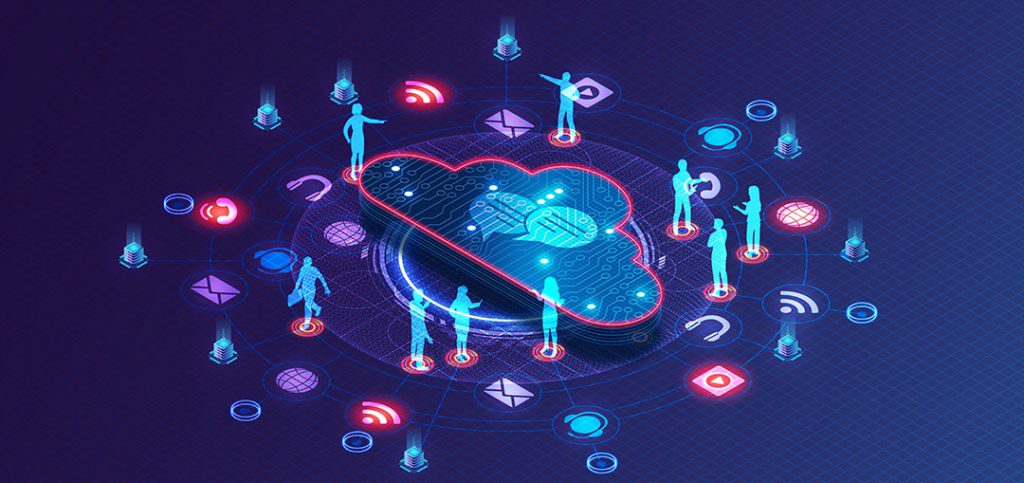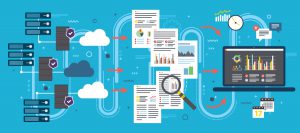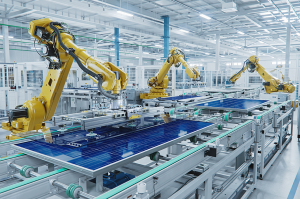Understanding the Role of Agentic AI in Modern Technology
Artificial Intelligence (AI) has transitioned from a niche concept to a critical driver of modern technology. The evolution from rule-based systems to Machine Learning (ML)-driven solutions has paved the way for more adaptive and intelligent applications. A notable leap in this progression is the rise of Agentic AI, which combines the contextual understanding of large language models (LLMs) with the operational efficiency of autonomous systems.
The trajectory from traditional AI to Agentic AI marks a substantial shift in how intelligent systems operate. While conventional AI systems excel at pattern recognition and predetermined responses, Agentic AI introduces a new dimension of autonomous operation, decision-making capabilities, and adaptive learning. Such transformation proves particularly relevant for enterprises seeking to implement advanced automation and intelligence in their operations.
What is Agentic A1
Agentic AI represents a class of artificial intelligence systems characterised by their capacity for autonomous decision-making and goal-oriented behaviour. The systems possess three fundamental characteristics: autonomy in operation, purposeful decision-making capabilities, and adaptive learning mechanisms. Unlike traditional AI systems operating within strictly defined parameters, Agentic AI employs sophisticated algorithms enabling behaviour modification based on environmental feedback and operational outcomes.
The technical architecture of Agentic AI systems incorporates advanced machine learning models, reinforcement learning mechanisms, and neural networks working in concert to create a system capable of independent action. The architecture enables processing of complex inputs, evaluation of multiple courses of action, and execution of decisions while maintaining alignment with predetermined objectives and constraints.
The distinction between Agentic AI and traditional AI systems lies in their operational framework. While traditional AI systems excel at specific, well-defined tasks, Agentic AI systems can operate across various contexts, adapt to new situations, and modify their behaviour based on experience and feedback. Such capability proves particularly valuable in dynamic environments where conditions and requirements frequently change.
Consider self-driving cars, chatbots that handle complex queries autonomously, or financial AI systems that swiftly analyse global markets and execute trades. These technologies don’t merely follow rules—they interpret, learn, and act.
How Agentic AI Shapes Modern Technology
Agentic AI systems offer several key capabilities,
- Autonomous Decision-Making: These systems analyse data, identify patterns, and make independent decisions, reducing the need for constant human oversight. Examples include self-driving cars, personalised recommendations, and automated process control.
- Human-Like Interaction: Leveraging advancements in natural language processing and conversational AI, agentic AI powers chatbots, virtual assistants (like ChatGPT), and customer service platforms, creating more natural and human-like interactions.
- Dynamic Adaptability: Agentic AI can adapt in real time. This allows for applications like predictive maintenance for IoT devices, fraud detection in finance, and supply chain optimisation.
- Scalable Expertise: Agentic AI can scale expert knowledge across industries. This makes specialised knowledge more accessible and actionable, as seen in medical diagnosis systems and financial advisory tools.
The Technological Framework of Agentic AI
The technological infrastructure of Agentic AI comprises advanced algorithms, LLMs, and robust integration mechanisms. At its core, it is built to blend AI and Machine Learning capabilities seamlessly, creating a holistic system that performs with both intelligence and agility.
- Large Language Models (LLMs): LLMs serve as the foundation of Agentic AI, enabling it to process vast volumes of unstructured data. These models enhance comprehension, making AI Agents more effective in natural language interactions, sentiment analysis, and predictive modelling. By leveraging LLMs, Agentic AI ensures meaningful and precise communication within its operational framework.
- Autonomous Agents: The autonomous nature of these agents is central to the Agentic AI framework. Unlike conventional systems, these AI Agents independently execute workflows, troubleshoot issues, and adapt strategies based on evolving data landscapes. They play a pivotal role in enabling efficient process automation.
- Integration with Existing Technologies: Agentic AI excels in embedding itself into current technological stacks. From cloud systems and IoT devices to legacy platforms, its compatibility ensures smooth transitions and upgrades. This integration fosters a unified technological ecosystem, optimising workflow design and tool usage.
By combining these components, Agentic AI creates a resilient and scalable framework, empowering organisations to address challenges with precision and foresight. This technological synergy underscores its pivotal role in shaping AI Trends 2025

Real-World Applications of Agentic AI
The true potential of Agentic AI is realised in its application across industries. Its versatility and efficiency enable transformative results, as demonstrated in diverse use cases.
- Autonomous Customer Service Agents for AAA: The American Automobile Association (AAA) leveraged Salesforce Agentforce to deploy autonomous customer service agents. These AI Agents streamlined interactions, providing timely and accurate responses to customer queries. The outcome was a significant boost in operational efficiency and an improved customer satisfaction index [1].
- Real-Time Data Analysis for Precina Health: In healthcare, Precina Health utilised Agentforce to revolutionise diabetes care. By integrating real-time data analysis and decision-making capabilities, the organisation enhanced patient outcomes. Agentic AI’s predictive analytics and continuous monitoring facilitated proactive interventions, ensuring personalised care delivery [1].
- Automated Financial Trading Systems: Financial institutions have embraced Agentic AI to enhance high-frequency trading operations. These intelligent systems analyse market trends, execute trades, and mitigate risks autonomously. The result has been a substantial increase in trading volumes, cost savings, and reduced operational burdens [2].
Impact Analysis:
- Efficiency Improvements: Agentic AI has demonstrated a 25-40% increase in process efficiency across industries.
- Cost Savings: Automation has reduced operational costs by up to 35% in certain sectors.
- User Satisfaction: Metrics indicate a 20% improvement in customer satisfaction rates.
These examples highlight how Agentic AI applications redefine industry benchmarks, underscoring its transformative impact on modern technology.
Advantages and Challenges
Agentic AI offers a range of advantages, but its adoption also presents notable challenges that require strategic management.
Advantages:
- Flexibility and Precision: By combining AI and Machine Learning, Agentic AI delivers tailored solutions that adapt to specific requirements.
- Scalability: Its architecture supports seamless scaling across operations, ensuring consistent performance as demands grow.
- Enhanced User Experience: By delivering timely and accurate solutions, it improves engagement and satisfaction.
Challenges:
- Ethical Considerations: Ensuring the ethical use of AI remains a primary concern. Issues such as bias in decision-making and accountability require thorough oversight.
- Data Privacy: Managing sensitive information securely is critical to maintaining trust and compliance.
- Technical Hurdles: Integrating Agentic AI into legacy systems can pose challenges, necessitating specialised expertise and resources.
Addressing these challenges is vital for leveraging the full potential of Agentic AI. Organisations must adopt robust governance frameworks to mitigate risks while maximising its benefits.
Agentic AI's Influence on Society
While Agentic AI offers significant benefits to businesses, its impact on society is also substantial,
- Supporting Innovation: AI helps to solve problems more quickly in areas like healthcare, education, and climate change. For example, AI-driven tools are now being used to diagnose diseases and suggest treatment plans more rapidly and accurately than before.
- Changing Jobs and Skills: Agentic AI is changing the workforce. While it automates some tasks, it also creates opportunities in areas like AI development, data science, and ethical oversight. Supporting workers in developing new skills will be important for adapting to these changes.
- Important Considerations: The development of autonomous AI raise important questions. It is vital to ensure fairness, prevent bias in decision-making, and find the right balance between human oversight and the autonomy of AI systems. Addressing these points is crucial for responsible development.

The Future Outlook
The technical trajectory of agentic AI indicates several emerging trends shaping its development through 2025 and beyond. Advanced neural architectures are enabling more sophisticated decision-making, while improvements in natural language processing are enhancing human-AI interaction. The integration of quantum computing promises to significantly expand the processing power of agentic AI systems, enabling them to handle increasingly complex tasks.
Industry analysis projects substantial growth in agentic AI applications across various sectors. In healthcare, these systems are expected to improve diagnostic accuracy by 40% and reduce administrative workload by 50%. Financial institutions are projected to achieve a 30% improvement in risk assessment accuracy and a 25% reduction in compliance costs. Manufacturing anticipates a 35% increase in production efficiency and a 45% reduction in quality control issues through the deployment of autonomous systems.
The convergence of agentic AI with other technologies, such as edge computing and 5G networks, is creating new possibilities for distributed intelligence and real-time decision-making. This integration is particularly relevant for applications requiring low latency and high reliability, such as autonomous vehicles and industrial automation.
Businesses that effectively integrate agentic AI will gain a competitive advantage, using its scalability and adaptability to innovate more quickly. AI-powered trade systems will become more agile and inclusive, facilitating smoother transactions and global connectivity. Responsible AI frameworks will be essential for building trust and ensuring sustainable growth. For individuals, it’s about remaining curious, adapting to new tools, and taking advantage of the opportunities agentic AI offers.
Predictions for the next decade include widespread adoption of autonomous systems in critical industries; the integration of ethical frameworks to govern AI development; and enhanced collaboration between humans and intelligent systems to drive innovation.
These advancements solidify agentic AI’s role as a key part of modern technology, promising a future where AI applications redefine possibilities across sectors. The era of agentic AI is here. The question is: How will we use it to shape the future of business, trade, and society?
Conclusion
The integration of Agentic AI in modern technology represents a significant advancement in how organisations approach automation and decision-making processes. The technology’s ability to operate autonomously while maintaining alignment with organisational objectives makes it a valuable tool for enterprises seeking to enhance their operational capabilities and competitive advantage.
Motherson Technology Services stands at the forefront of technological evolution, offering comprehensive solutions for organisations looking to implement Agentic AI systems. With extensive experience in system integration, data security, and AI implementation, Motherson Technology Services provides end-to-end support for enterprises transitioning to advanced AI solutions. Our technical expertise spans across various industries, enabling delivery of customised solutions addressing specific organisational needs while ensuring optimal performance and reliability.
As organisations continue to navigate the complexities of digital transformation, the role of Agentic AI will become increasingly significant. Those who successfully implement such systems, supported by experienced technology partners like Motherson Technology Services, will be well-positioned to leverage the advantages of autonomous, intelligent systems in driving operational excellence and innovation in the years ahead.
References
About the Author:

Devesh is tasked with constructing the sales organization and propelling customer triumph along their expedition of digital transformation. Devesh holds the status of an industry expert, enriched by his varied tenure within the IT sector collaborating with Oracle and Wipro. Throughout his career, he has assumed multiple leadership positions within sales and the oversight of client connections. This has been spread across both domestic and international markets, spanning a spectrum of geographical regions and encompassing diverse industry sectors and technological landscapes.

 February 5, 2025
February 5, 2025 Devesh Kaushik
Devesh Kaushik














































